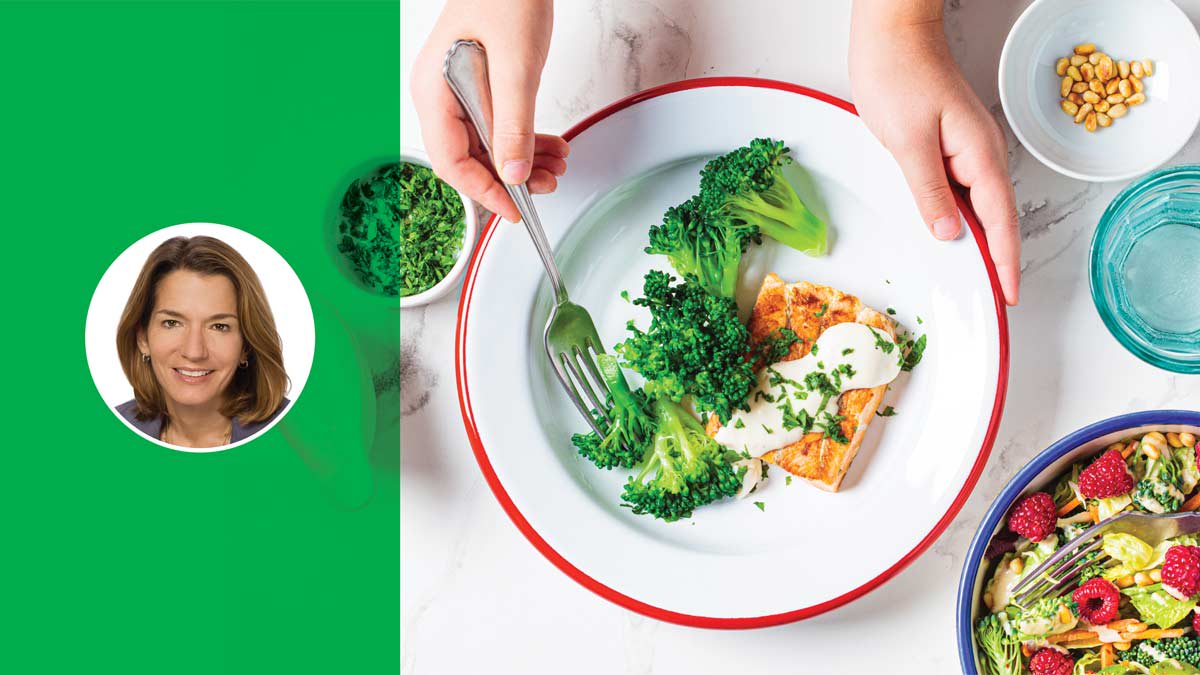- August 12, 2022
- No Comment
- 7 minutes read
5 Things Our Registered Dietitian Would Never Do – Consumer Reports

Consumer Reports’ healthy food expert, Amy Keating, explains why she’d never go on a quick-fix diet
Looking to change up how you eat? Chatting with a dietitian is a good place to start.
Amy Keating, a registered dietitian and nutrition whiz at Consumer Reports, chatted with us about the five things she’d never do as someone who is professionally trained in healthy eating. Looks like I’ll be cutting down on my hot dog consumption—and start spending a bit more time lingering in the aisles at the grocery store.
“Going on a ‘diet’ implies you are going to go off. Health and lifestyle changes backed by science are better than any ‘diet’ to keep you healthy for the long term.”—Amy Keating
Many of us would love to do a quick, intense diet, reach our goal weight, and then go back to eating how we used to. Like a get-rich quick scheme, quick-fix diets have an undeniable appeal—and, like getting rich quick, it probably won’t work out in the long run.
“Weight cycling” or “yo-yo dieting,” in which a person frequently goes on and off a diet, can increase your risk of cardiovascular disease. It’s much healthier to build healthy habits that work for you and include a diverse range of foods that you’ll stick with in the long run, even if it means you don’t lose as much weight as quickly.
“For example, I’d never go grain-free—the evidence points to the importance of adding whole grains to your diet. They are associated with lower risk of lots of chronic diseases.”—A.K.
Unless you have celiac disease or other allergies, you should increase your intake of whole grains, which studies have linked to lower risk of obesity, heart disease, diabetes, and cancer. Plus, limiting your whole-grain intake can mean you don’t get enough fiber, which can make you constipated.
Even the keto diet, in which dieters cut out most carbs from their daily food intake, isn’t worth it for most people. Getting lots of fiber, from whole grains as well as other foods like beans and vegetables, can keep you young, protect against diabetes, cut your cholesterol levels, reduce inflammation, and help you maintain a healthy weight.
“It can make healthy foods less appealing and may promote overeating, and even lead to unhealthy relationships with food as adults.”—A.K.
It can be tough to have a picky kid, but allowing them some degree of choice can prevent them from seeing food as a reward or a punishment. Forcing kids to eat food they don’t like, or eat when they’re not hungry, can interfere with their natural hunger cues and make it difficult for them to know when, and how much, to eat.
Instead, empowering your kids in the kitchen can give them a safe way to assert their independence, personal taste, and creativity. Taking kids grocery shopping, allowing them to help out in the kitchen, and modeling your own moderate, balanced eating habits can help kids develop their own healthy attitude toward food.
“Processed meats can increase your risk for colon cancer and are also loaded with sodium. Try more plant-based proteins, like hummus, lentils, and beans, and stick to lean proteins, like fish and chicken breast.”—A.K.
A sliced ham sandwich makes for an easy lunch, but unfortunately it’s not a good idea to eat it regularly. That’s because cold cuts, such as sliced turkey and bologna, have been linked to heart disease, type 2 diabetes, and stroke, and increase your risk of cancer.
Even supposedly healthier deli meats, like turkey or chicken, are problematic. Eat processed meats sparingly, and fill your whole grain sandwich with avocado, salmon or tuna (although pregnant people should avoid canned tuna because of mercury levels), onions, and pickles.
“Ideally, most of the foods in your cart shouldn’t have complicated food labels—think fruits, vegetables, and whole grains. But before I buy any new packaged food, I check out the nutrition and the ingredients list for hidden sugars, saturated fats, and other unhealthy ingredients.”—A.K.
If you’re buying packaged foods, the side of the box, which lists the ingredients and the nutrients, is your best friend. Avoid relying on the box’s front, where companies may make unregulated health claims that can be misleading. Check the Nutrition Facts for foods that are low in saturated fat (but not necessarily other forms of fat, which are essential to a well-balanced diet), sodium, and sugar, and high in fiber and vitamins, such as vitamins A and D.
Adult women should get between 21 and 25 grams of fiber and a maximum of 24 grams of added sugars per day, while men should consume between 30 and 38 grams of fiber per day and no more than 36 grams of added sugars per day. All genders should cap their sodium intake at 2,300 mg of sodium per day.
Angela Lashbrook
I believe shopping should be fun, safe, and sustainable, and I shape my coverage at Consumer Reports around how consumers of all ages can have better shopping experiences. I’ve worked in media for seven years, and my diverse time in the industry has taught me that quality service journalism is a critical resource. When I’m not working, I’m usually reading, cooking (or, more likely, eating), and hanging out with my dog, a Libra named Gordo.
We respect your privacy. All email addresses you provide will be used just for sending this story.

